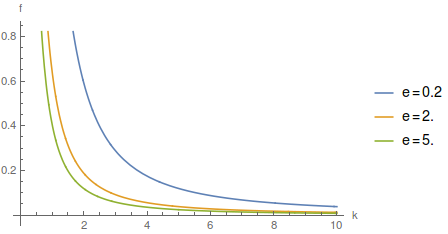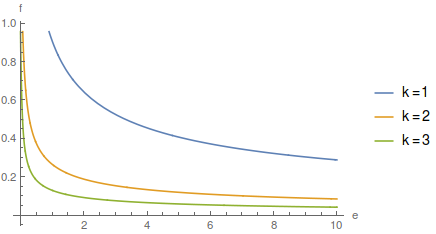I would like to compute the following function:
Integrate[Gamma[k,0,Exp[-2 e x^2]],x]
k is an integer and e a parameter. I would like to be able to have an closed form expression for it to fit a curve (actually to fit convolutions of this function, but it's the same), or at least a function to compute numerical approximate values, given the values of k and e.
I have tried Integrate and NIntegrate, but they do not work, and do not return a value or an expression.
Is there a way I can do this with Mathematica? Or maybe another software that could do it?


